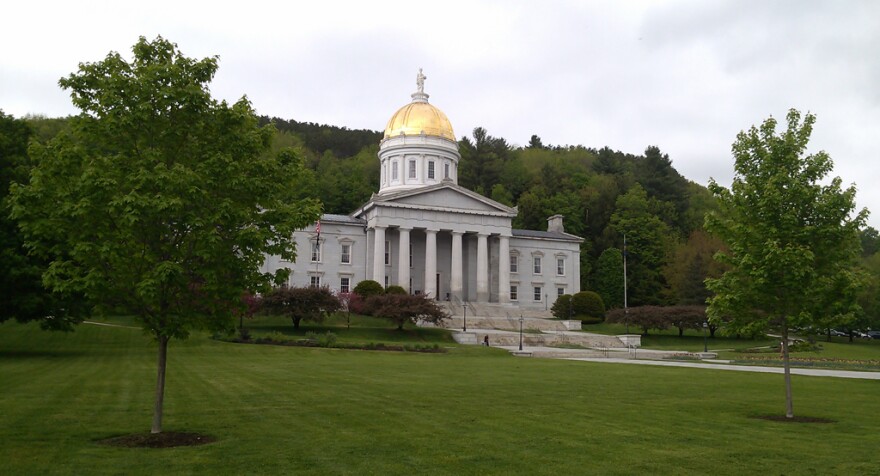A new session of the Vermont Legislature begins Wednesday with Democrats in control of both chambers and a Republican in the governor’s seat. WAMC’s North Country Bureau Chief Pat Bradley looks at what’s expected as the new biennium begins.
In November all seats in the Vermont House and Senate and all of the state’s Constitutional offices were before the state’s voters.
Republican Governor Phil Scott was re-elected to a fourth two-year term and must now work with a Democratically controlled legislature that earned a supermajority.
Vermont Democratic Party Executive Director Jim Dandeneau says their expectations are that legislators will work diligently and a lot can change in committee rooms.
“On the campaign trail we heard people talking about housing and child care and paid family leave and climate change. And we expect that all of those issues are going to be addressed, right. These are all top priorities I’m sure of our legislative caucuses. But there’s quite a bit of work left to do before we have a sense of what the final product’s going to look like. But we elected very smart people. We elected very hard workers and we have complete faith that they are going to do some great work on behalf of Vermonters.”
Dandeneau characterizes the Democratic supermajority as a procedural feature and says the party wants compromise.
“What I expect is our legislative caucuses are going to take a lot of feedback from a lot of different people. So a supermajority is really just a procedural hurdle that helps them move past breakdowns in the process. If a party is not negotiating in good faith, if a party is not participating in the process at all, you know if a party is trying to play political games and block the passage of legislation then the supermajority enables our legislative leaders to say enough is enough, we have to get this done on behalf of our constituents and we’re going to move forward with it. So it’s freeing to them in a sense but it doesn’t change the job that they need to do. And it doesn’t change, I don’t think, their approach at least at the start of the process.”
House Speaker Jill Krowinski and new state Senate Pro Tem Phil Baruth are Democrats.
Vermont Republican Party Chair Paul Dame says their expectations for the biennium will have to be tempered.
“Not only are there more Democrats but I think that some of the folks who got elected are even farther to the left than some of the more moderate members that they’re replacing. That certainly means that Republicans are going to be on defense and it’s really going to be up to us to identify those areas where the Democrats have maybe become overconfident in their majority and are pushing legislation through a little bit too quickly. And Republicans will have to be there to say hey let’s tap the brakes, let’s take a look at some of the unintended consequences of some of the things that are being proposed. And Republicans have to be able to provide clear alternatives.”
The Ethan Allen Institute is a conservative think tank. Vice President John McClaughry is a former state Senator who recently published a column comparing the upcoming session to the 1889 Johnstown flood. He expects Democrats to run rampant due to their supermajority.
“I think the Democratic leadership is very left-wing, very militant. And now that they’ve seen that they’ve got a veto-proof majority they’re going to show Phil Scott that he can’t be a bump in the road for them anymore. So I think it’s going to be a contentious two years. They’re going to run a whole bunch of things through one after the other. Scott will protest. Sometimes he’ll veto. They’ll overturn the veto and they’ll have what they wanted: resistance reduced to de minimis.”
After the biennium begins Wednesday, Governor Scott will deliver his inaugural address Thursday afternoon.


